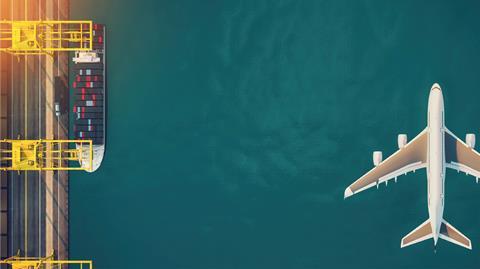Geodis said that it can now offer sustainable fuels to its air and ocean freight customers.

“The development of biofuel is one of the strategic paths being pursued by Geodis to meet the challenge of carbon neutrality. With these new solutions for air and sea freight, we offer our customers an additional way to decarbonise their entire supply chain,” said Marie-Christine Lombard, Geodis ceo.
The company is already utilising biofuels in some of its road freight operations.
Sustainable aviation fuel (SAF) and sustainable marine duel (SMF) are produced using food and agricultural waste (mainly cooking oil). Their use allows for a massive reduction in CO2 emissions over the cycle from production to fuel consumption – at least 80 percent for air and 90 percent for sea transport, along with a reduction in other pollutants, said Geodis.
These alternative fuel sources are classified as ‘insetting’ or ‘integrated carbon reduction’ because they occur within the means of transport’s own value chain, unlike conventional carbon offsetting such as solar panels, wind turbines and tree plantations that are not involved directly in the operational sphere. “These ‘insetting’ solutions offer our customers the ability to directly impact the global carbon output linked to their shipments by reducing it significantly,” said Philippe de Carné, Geodis executive vice president business development, CSR and innovation.
Each customer can opt for as high a level of contribution as they wish, covering up to 100 percent of the CO2 emitted by the transport of a shipment, he added.














